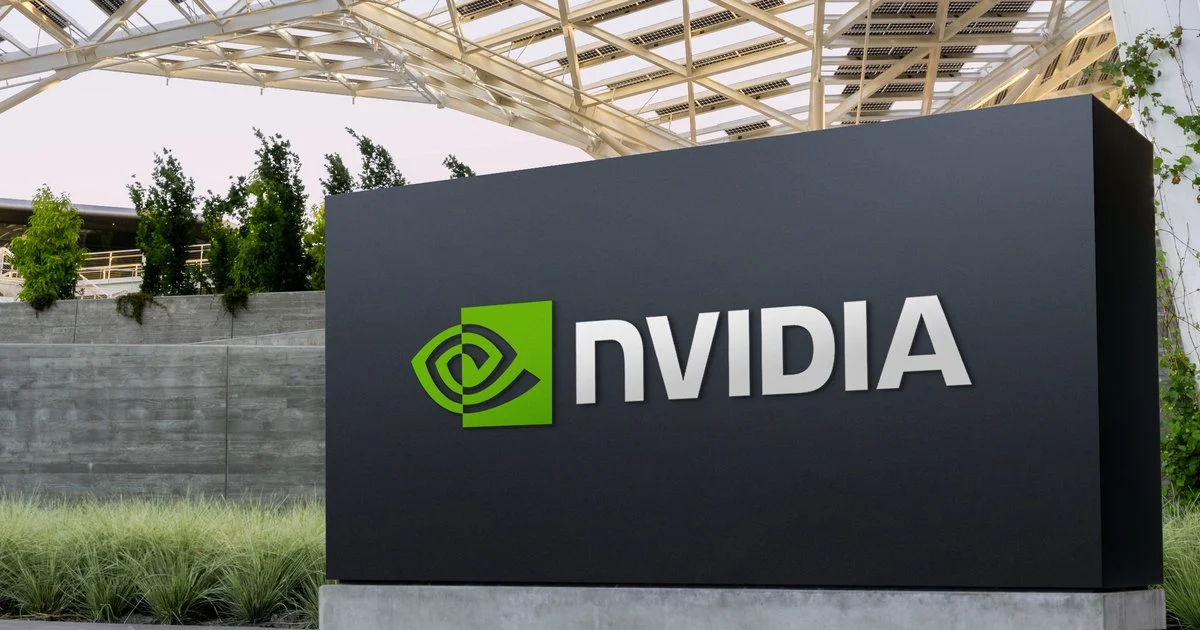ANALYSIS: Behind the Dueling Narratives Shaping Nvidia's Valuation

SANTA CLARA, Calif. — A series of high-volume executive stock sales and bold predictions about market challengers has intensified a debate over the long-term valuation of chipmaker Nvidia. The developments have pitted concerns over insider confidence against overwhelmingly bullish financial forecasts, creating dueling narratives that are now shaping investor sentiment around the world's most valuable company.
At the center of the debate are two primary points of contention: reports detailing over $1 billion in stock sales by Nvidia executives, and pronouncements from prominent tech figures, such as SoftBank's Masayoshi Son, suggesting a future where another company could overtake Nvidia's market leadership. These events have sparked a re-evaluation of the company's trajectory, even as its strategic and financial momentum appears to reach new heights.
Scrutiny Over Executive Stock Sales
Recent reports from major financial news outlets, including CNBC and Yahoo Finance, have focused significant attention on stock sales by Nvidia's senior leadership. Citing data from VerityData and the Financial Times, these reports have highlighted that insiders sold shares valued at over $1 billion in recent months. The recurring use of the term 'dumped' in some coverage has fueled a narrative suggesting a potential lack of internal confidence, raising questions among some investors about whether the company's meteoric rise is sustainable.
This interpretation, however, is being challenged by financial analysts and experts in corporate governance. They point out that a vast majority of these sales were conducted under pre-scheduled SEC Rule 10b5-1 trading plans. These plans are established by executives months in advance to automatically sell a predetermined number of shares at a specific time, a mechanism designed to avoid any accusations of trading on non-public information.
"To frame scheduled, automated 10b5-1 plan sales as a panicked 'dump' is a fundamental misreading of how executive compensation and financial planning works at this level," stated a senior analyst at a wealth management firm specializing in tech portfolios. "After a stock appreciates by over 200% in a year, it is standard, and frankly, prudent, for executives to diversify their personal holdings. These plans are set up when the stock is at a much lower price, and their execution is not an active, real-time vote of no-confidence but a pre-planned financial strategy."
Supporters of this view further argue that the focus should be on the shares executives retain, not the small percentage they sell. Public filings indicate that top executives, including CEO Jensen Huang, continue to hold vast positions in the company, representing the overwhelming majority of their net worth and signaling a deep-seated belief in its future prospects.
Financial Forecasts and Strategic Vision
While one narrative focuses on stock sales, an even more powerful one is being driven by financial market analysis. A recent forecast highlighted by The Motley Fool suggests a path for Nvidia to reach a staggering $6 trillion market capitalization, a figure that would dwarf its current valuation. This projection is based on the company's commanding lead in the AI accelerator market and its expansion into higher-margin software and enterprise platform solutions.
This bullish outlook is heavily reinforced by the strategic vision laid out by CEO Jensen Huang, which has received favorable coverage in publications like Forbes. According to reports, Huang's strategy extends far beyond selling individual chips. The company is positioning itself as the foundational 'operating system' for the entire AI industry through its CUDA software platform, networking technologies, and end-to-end data center solutions. "Nvidia is not a semiconductor company anymore; it is a full-stack AI infrastructure provider," an analyst noted in a recent brief. "Their moat is not just the silicon, but the decades of software development and the ecosystem they've built around it."
This strategy is being validated by major enterprise partnerships. The recent announcement of a collaboration with Hewlett Packard Enterprise (HPE) to create 'Nvidia AI Computing by HPE' is seen by market watchers as a significant move to solidify its dominance in corporate and government sectors. The partnership aims to provide a turnkey solution for enterprises to adopt generative AI, embedding Nvidia's technology deeper into the fabric of the global economy.
The 'Challenger' Narrative and Consumer Momentum
The idea of Nvidia's perpetual dominance is not without its challengers. A prominent story in the Times of India amplified a prediction from SoftBank founder Masayoshi Son, who suggested that OpenAI, the creator of ChatGPT, could eventually surpass all other companies to become the world's most valuable. This contributes to a 'not just Nvidia' narrative, suggesting that the AI revolution will produce multiple winners and that the ultimate value may lie with model-makers rather than hardware providers.
However, industry experts counter that this presents a false dichotomy. They argue that the success of companies like OpenAI is directly fueling the demand for Nvidia's hardware. "One does not succeed at the expense of the other," explained a technology strategist. "Every advance OpenAI makes with its models requires more, and more powerful, computational power. Nvidia is the primary enabler of that progress. It's the classic 'picks and shovels' play in a gold rush."
This forward-looking momentum is not confined to the enterprise space. On the consumer front, a strong undercurrent of excitement is building around rumored RTX 50-series SUPER GPUs. The persistent hype, a fixture in the tech community, reinforces Nvidia's brand as a relentless innovator, consistently pushing the boundaries of performance for gamers and creators—a core market that provides both significant revenue and a loyal testing ground for its technologies.
As these competing narratives unfold, the market is left to weigh the optics of executive financial planning against the fundamental metrics of market share, strategic partnerships, and a clear vision for the future. While critics focus on insider sales, proponents argue the company's foundational role in the AI economy makes its long-term growth a matter of when, not if.

